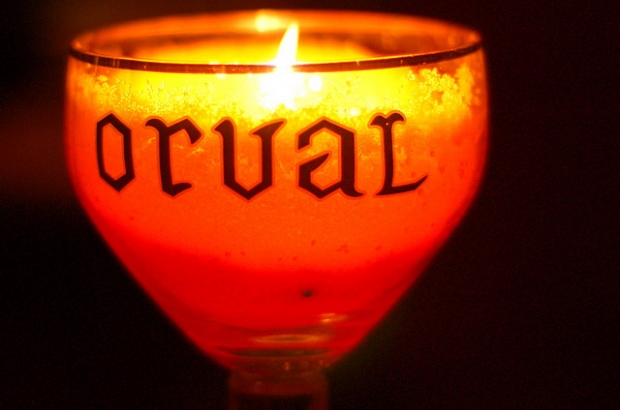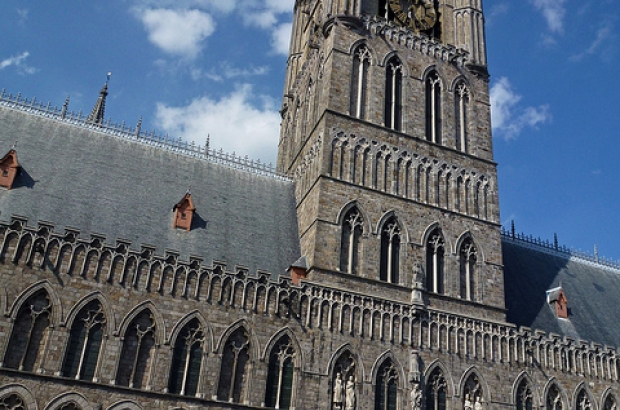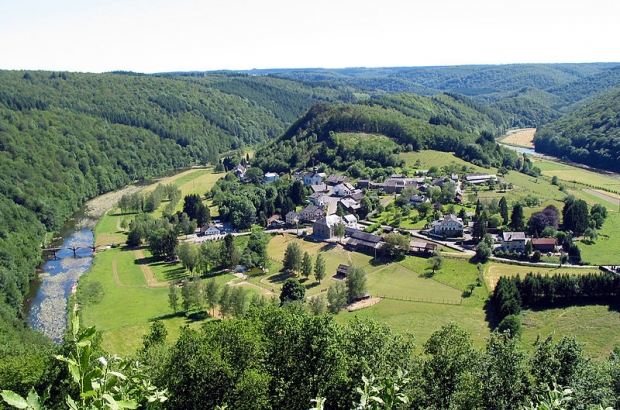- Daily & Weekly newsletters
- Buy & download The Bulletin
- Comment on our articles
Eight local Belgian secrets you wish you’d known about sooner
Enjoy Belgium like the Belgians do
As an expat rather new to Belgium, you like many others probably know very little about this platteland: you’ve heard of Bruges, eaten Belgian pomme frites with mayonnaise, and have perhaps seen Manneken Pis in one of his many frocks.
But as you carry out these touristic routines, you get a feeling that there’s more to Belgium’s flat surface; that while you take pictures on the Grand Place, the locals are enjoying the country based on a different savoir-faire, and are better off for it.
The Bulletin is thus here to reveal Belgium’s benefits; to unveil some of the local knowledge that once learnt will have you feeling truly Belgian.
---
1. Belgian weather
It’s probably the number one subject of conversation at the morning coffee table, simply because you never know what weather Belgium is going to throw at you on a particular day. While many souvenirs coin the phrase “It’s always rainy in Belgium”, the better motto would be “Belgium has four seasons a day”. One can have a warm sunny morning, an afternoon shower and conclude with a brisk foggy evening.
To deal with this the Belgian way, wear layers that prepare you for all temperatures and carry an umbrella and rain-resistant shoes for the surprise pelting of rain.
2. Bière flambée
Most expats have already experienced Brussels’ famous Delirium Cafe and have drank one too many of its 2,000 beers. A more advanced tourist may even know that Jeanneke-Pis, Manneken Pis’s publicly urinating sister, is just across from this drinkers’ haven. But what most expats don’t know – and that the locals do – is that this bar also specialises in setting its beers on fire.
An apparent specialty of Mons, bière flambée is a special and tasty Belgian exclusive in which you take a sweet liqueur, set it on fire and then extinguish it with a healthy dose of Belgian beer. While it can be made at home, The Bulletin suggests watching a pro first by ordering it at Delirium. Try our favourite, the Kriek flambée: a cinnamon-flavored liqueur with Lindemann’s Kriek, simply beer heaven.
3. Moeder Lambic
While Delirium’s bières flambées are delicious, the cafe is often flooded with as many tourists as the beers it offers. For a calmer bar atmosphere with just as rich a beer selection, try the locals’ alternative, Moeder Lambic. This bar is in Brussels’ hip gentrified Saint-Gilles neighbourhood (but also in central Brussels near metro stop Anneessens).
Moeder Lambic is supplied by the most microscopic of brewers, sometimes making just two kegs of beer a year. With the help of Moeder Lambic servers and their Wikipedia-worthy knowledge of beer, you’ll find yourself sipping on a beer that is as unknown as it is tasty.
4. Railway passes
As the money starts adding up from all those day-trips you take around Belgium, you begin to wonder how the locals can afford domestic travel with their less luxurious salaries. The secret is they don’t: they travel with one of the NMBS/SNCB’s travel cards.
The Belgian railway proposes different discount travel cards based on your age, where and how you travel. For example, under-26s can buy a Go Pass of 10 journeys and can travel anywhere in Belgium for €5.10 (several people can travel with the same pass as well). The adult version is called the Rail Pass and costs €7.60. When you take the price of a one-way standard ticket from Brussels to Bruges (€28.20), the value of such passes is without question.
5. Ypres
While most tourists flock to Bruges for its Venice-like bridges, little expats know about a nearby West Flanders city that is a must-see for Belgians. A charming town and once booming trading centre in the Middle Ages, what really puts Ypres on the locals’ map is its unique ties with World War One.
During the war, Ypres was, like many Belgian towns, heavily bombarded and reduced to a heap of rubble. After the war, instead of rebuilding their city according to modern architecture, Ypres’ citizens decided to replicate every lost building as it was before the war, in an respectful (and eerie) reminder of the war.
Belgians come to Ypres therefore to pay respect to those who died in the war, and can do so by attending the Menin Gate, where every evening at 20.00, the Last Post is solemnly played by volunteers of Ypres fire brigade.
6. Get paid by the Belgian government to be fit
You may wonder what motivates all the locals to get up every morning and bike to work, particularly in a country that wins the prize for worst traffic in Europe. Here’s the secret: they’re paid to do it.
To encourage health and more sustainable living, the Belgian government offers a tax incentive to bike commuters (with a Belgian work contract) of €0.21/kilometre, allowing you to earn up to €664.65 extra a year, just for being ecological and fit. Another Belgian entity willing to dish out money for your active lifestyle is your Belgian complimentary insurance. Depending on the mutuelle, you can get €15-€35 back annually for any sports or fitness subscription.
As for where Belgians get their bikes for cheap, they either pay €32 for a year-long Villo bike card, or buy a second-hand bike at Les Petits Riens or the Marolles flea market.
7. Ardennes
Ever wondered where all the Belgians go on the long weekends to relax and escape from Belgium’s tourist spots? The answer is the Belgian Ardennes. This south-eastern region of Wallonia is Belgium’s green lung, offering rolling meadows, lush forests and pictoresque villages. Those in the know come here for a weekend of relaxation in a B&B or gîte (cottage) accompanied with nature hikes, mountain biking, beer tasting in one of Wallonia’s many local beer abbeys and even water skiing at the Lacs de l'Eau d'Heure.
8. Belgian music festivals
You’re not really living it up like a local until you’ve experienced one (or several) of Belgium’s festivals. First, there’s the summer music festivals that start in June and run almost every week until September. But just as jovial and lighter on the wallet (often free) are Belgium’s city and regional festivals: these are local festivals where local music, live theatre and circus shows play and local cuisine and art are on display. While you can find a complete list here, take particular note of Gentse Feesten, Namur in May, Aperos Urbains and Laundry Day.
Photos: Wikimedia Commons & Flickr/Kmeron, Robert Wallace, ThruTheseLines























Comments
N° 6 gets even much much better:
Your employer may pay you an untaxed 21 cents per km you effectively cycle to get to work. There is no yearly limit, contrary to what the article says.
On top of that, you may maintain those 21 cents / km in your professional expenses (if you opt to prove them, rather than having the default expenses automatically deducted). That's right people, you get reimbursed and you can still deduce these "costs" from your taxable income.
Then, the costs of the bike itself, its equipment, rental and maintenance are also deductible, and what's more, at 120% (one hundred twenty %).
Lastly, and this is *really* exceptional in the most taxed country of the OECD, you may neglect the private use of your bike, if you cycle to work regularly.
I would never set out to criticize anyone's English as a second, or third, language (it's much better than my French or Dutch will ever be, let's put it that way). However you might want to stop speaking about "Belgium's backside" - as native English speakers know (at least those from the UK), this has a very specific connotation, and not the one I think you wanted to convey! ;-)
Thanks for pointing this out, Jan; I've changed it to something with less anatomical connotations!
Reminds me of a few years ago when I was with some British friends at my Belgian neighbours' home (both of whom speak very good English). Their back entrance was on the side of the house. We were all due to leave together, when suddenly the husband pronounced 'We'll go out the back side!' Brilliant, we were all in stitches and he had a hard time living that one down!